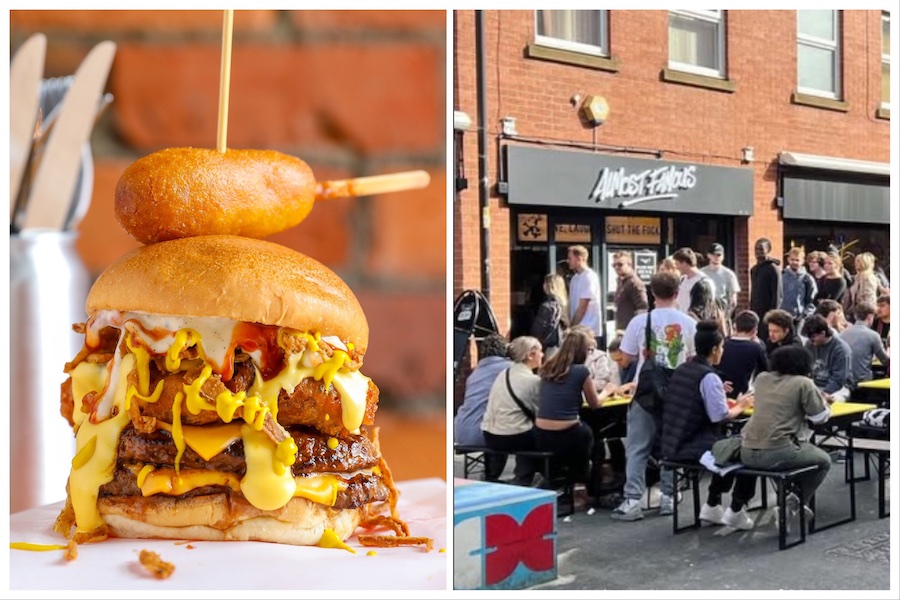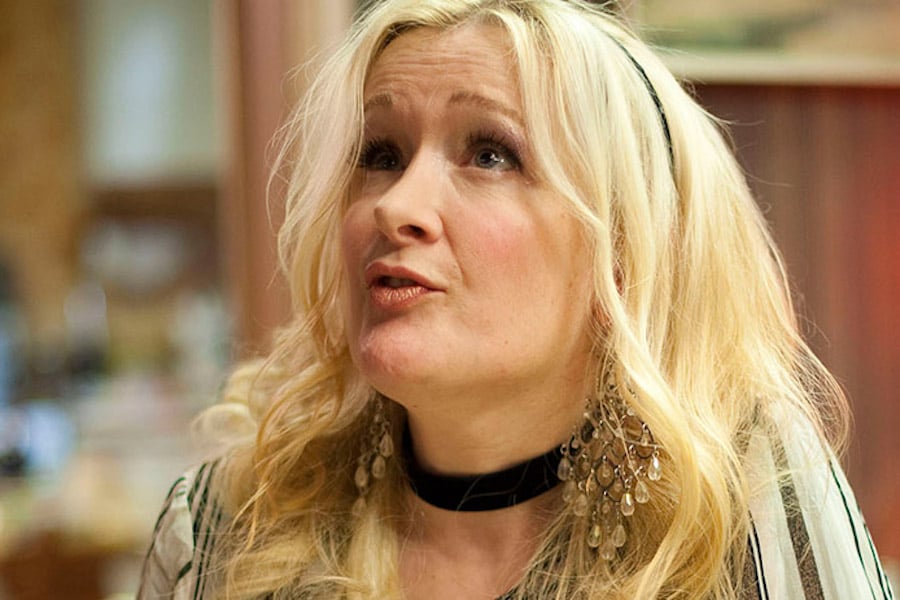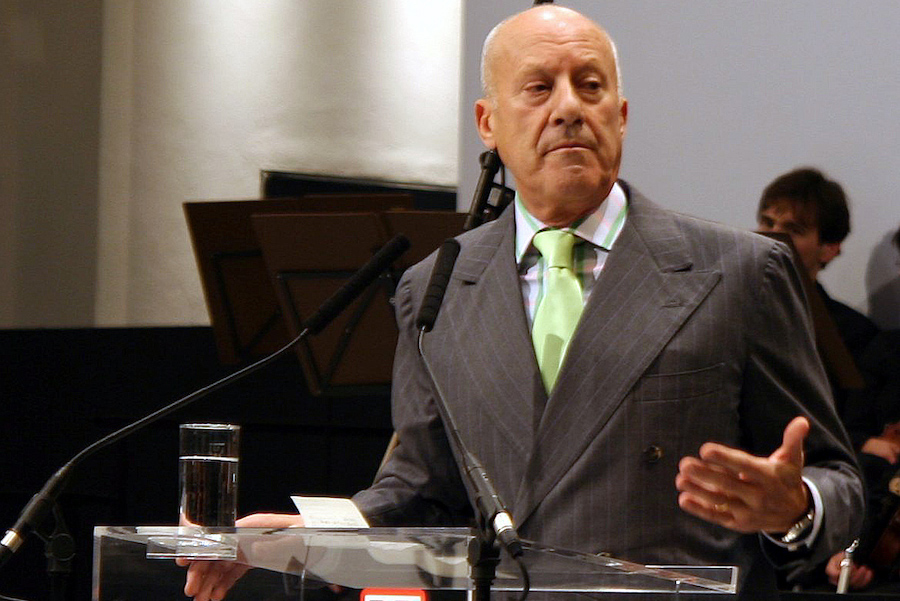Manchester Evening News celebrates 150 years
- Written by Ray King
- Last updated 6 years ago
- City of Manchester
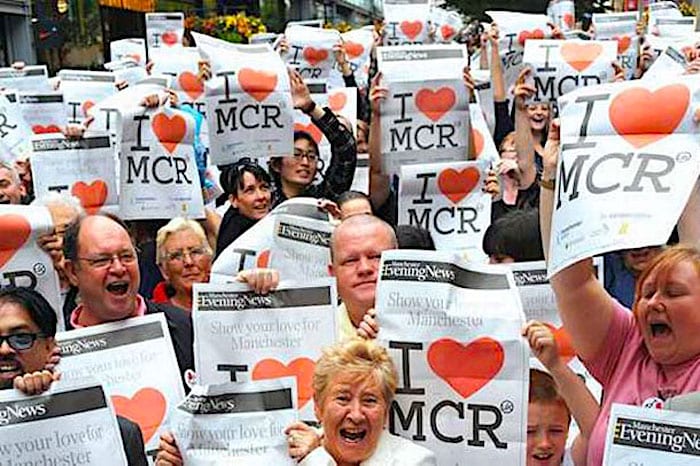
The first edition of the Manchester Evening News was published on 10th October 1868 by Mitchell Henry, son of a local cotton magnate, to help his candidacy in the general election of that year. He lost.
After the election, the paper passed out of his hands and was rescued by John Edward Taylor, whose father had been the first owner of the Manchester Guardian, and his brother-in-law Peter Allen.
It was the first connection between the two titles that was to continue, on and off, until 2010.
By 1879, the MEN and the Manchester Guardian were sharing the same landmark building on Cross Street – the site is now occupied by Boots – though it wasn’t until 1924 that the two papers became official partners.
The evening paper was bought by John Scott, son of the Manchester Guardian’s legendary editor CP Scott, mainly because the former’s lucrative income from carrying page after page of classified advertising was seen as a safety net that would guarantee the survival of the morning paper and fund its growing ambition to become a national title.
Manchester Evening News journalists, however, were never content to play second fiddle to their lofty counterparts on the Manchester Guardian and refused to consider their paper as a mere milch cow for its esteemed stablemate.
Indeed, at the start of the 1930’s, the MEN’s appointment of William Haley as managing editor at the age of 29 – he went on to become director-general of the BBC, then editor of the Times – marked a major turning point. He grew the circulation from 150,000 to more than 200,000, making it Manchester’s most popular evening newspaper.
According to an article in the Guardian in 2010: “[Haley] was…paid more than John Scott himself. As Scott admitted to Haley, acknowledging the Guardian’s debt to the MEN, ‘After all, you make the money we spend.’”
As all MEN staff, past and present know only too well, it was a sentiment that didn’t last long. In fact as soon as the paper ceased making money for the Guardian to spend, it was offloaded to Trinity Mirror.
The Guardian, which dropped Manchester from its title in 1959, remained dependant on MEN profits for decades.
Harold Evans, former editor of the Sunday Times and the greatest newspaperman of his era, cut his teeth on the MEN. In his autobiography My Paper Chase, he described how the evening title was always the cash cow which subsidised the Guardian, despite the fact that “some of my friends on the News in the 1950s felt that the Guardian staff patronised them for being from a lower universe.”
As the pressures on the MEN mounted from the mid-1980s, Evans’ observation became pretty common currency among editorial staff.
Evans had been nurtured by editor Tom Henry, whose main claim to fame was scooping the world by publishing news of the ending of World War II a day before anyone else. Henry remained in the editor’s chair until the end of the 1960s (he turned down my job application in 1968) when he was replaced by Brian Redhead (who hired me as a reporter in 1970).
The MEN was in its heyday. Its merger with the Manchester Evening Chronicle earlier in the decade had taken its circulation to 480,000 copies a night. The paper had an editorial staff of more than 100, a London office in Fleet Street, a dedicated lobby correspondent in the Houses of Parliament and, in the darkest days of the “Troubles”, maintained a virtually permanent presence in Northern Ireland.
I was dispatched to Dublin the weekend after Bloody Sunday. When another march was planned for Newry, Redhead told me to “get a ride on a tank” in the event of the Irish army invading the North to protect the marchers. Thankfully, the Newry march took place without incident.
With a circulation area covering most of the north west and even Blackpool and the north Wales resorts in summer – the MEN was never shy of thinking big, as well it might, boasting the largest evening paper sale outside London. Assignments eventually took me to every continent except Antarctica – including covering Nelson Mandela’s election as South Africa’s president.
The paper adopted the tabloid format in the mid-1980s, but the storm clouds were already gathering and circulation was in steep decline. The biggest factor was the migration of much of the money-spinning advertising to the web. The loss of revenue inevitably impacted upon resources available to the editorial department.
In 2004, the MEN, like many other evening papers, began publishing a morning edition with a deadline the night before. Inevitably, it became the only print edition, though the paper’s award-winning website is constantly updated.
Despite print circulation now below 40,000, the MEN was named Newspaper of the Year and Website of the Year in the 2018 Press Gazette awards.
- This article was last updated 6 years ago.
- It was first published on 25 September 2018 and is subject to be updated from time to time. Please refresh or return to see the latest version.
Did we miss something? Let us know: [email protected]
Want to be the first to receive all the latest news stories, what’s on and events from the heart of Manchester? Sign up here.
Manchester is a successful city, but many people suffer. I Love Manchester helps raise awareness and funds to help improve the lives and prospects of people across Greater Manchester – and we can’t do it without your help. So please support us with what you can so we can continue to spread the love. Thank you in advance!
An email you’ll love. Subscribe to our newsletter to get the latest news stories delivered direct to your inbox.
Got a story worth sharing?
What’s the story? We are all ears when it comes to positive news and inspiring stories. You can send story ideas to [email protected]
While we can’t guarantee to publish everything, we will always consider any enquiry or idea that promotes:
- Independent new openings
- Human interest
- Not-for-profit organisations
- Community Interest Companies (CiCs) and projects
- Charities and charitable initiatives
- Affordability and offers saving people over 20%
For anything else, don’t hesitate to get in touch with us about advertorials (from £350+VAT) and advertising opportunities: [email protected]
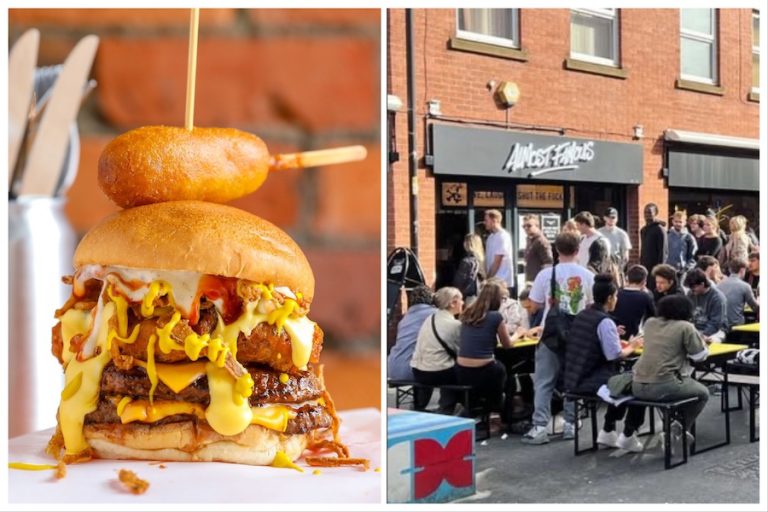
Almost Famous brings back its most legendary burger – for one month only
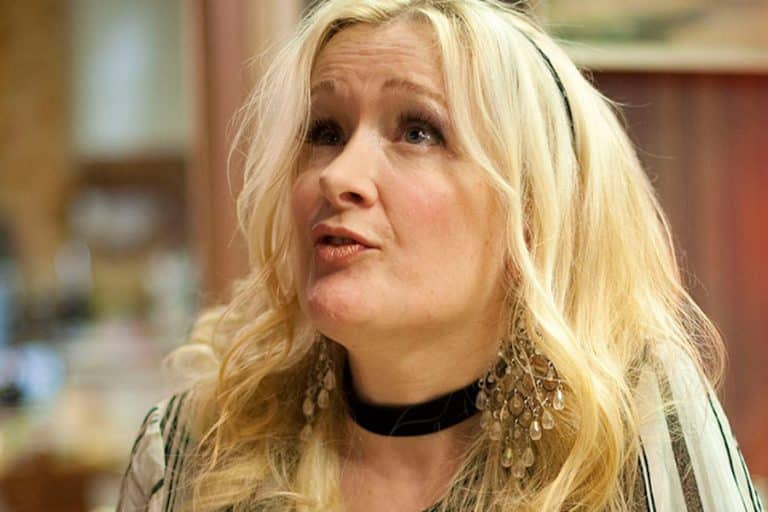


The world-renowned Mancunian architect behind Old Trafford’s future

Manchester United reveal plans for new 100,000-seater stadium – set to be UK’s biggest







